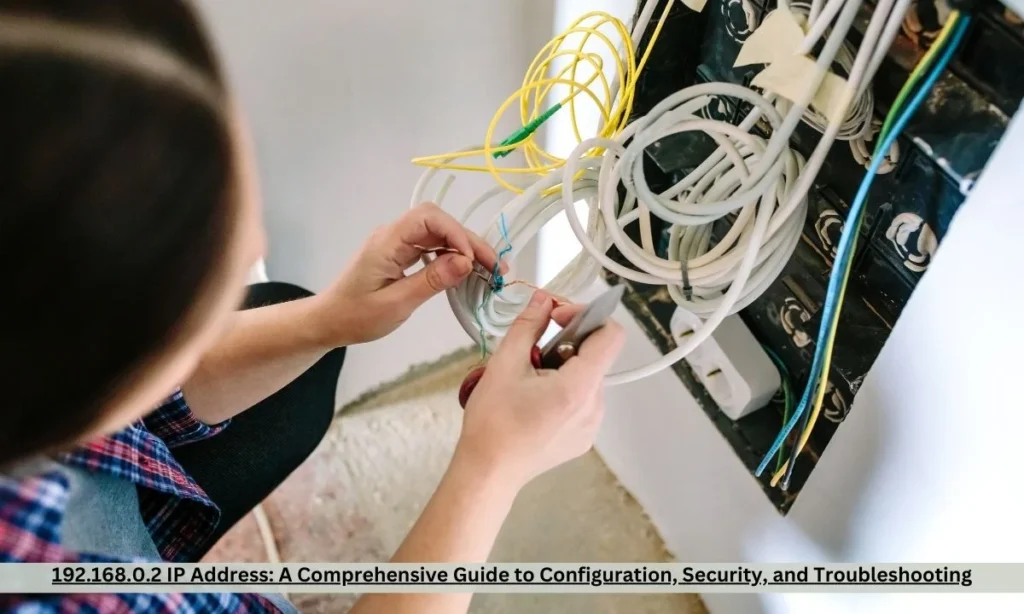192.168.0.2 IP Address: A Comprehensive Guide to Configuration, Security, and Troubleshooting

192.168.0.2 IP Address: A Comprehensive Guide to Configuration, Security, and Troubleshooting
The IP address 192.168.0.2 is a commonly used private IP address within local area networks (LANs). It is often assigned to devices such as computers, routers, or other networked hardware within a home or small business network. Understanding what 192.168.0.2 represents, how it is used, and how to manage it is essential for anyone looking to maintain a secure and efficient network environment.
What is an IP 192.168.0.2?
The IP address falls within the range of private IP addresses, specifically within the 192.168.0.0 to 192.168.255.255 range. These addresses are reserved for use within private networks, meaning they are not routable on the internet. The 192.168.0.2 address is typically assigned as a default IP for devices like routers and can also be manually configured on individual devices.
Understanding Private IP Addresses 192.168.0.2
Private IP addresses, including 192.168.0.2, are used to identify devices within a local network. Unlike public IP addresses, which are unique and assigned by Internet Service Providers (ISPs) to allow access to the global internet, private IP addresses are meant for internal use within a LAN. The IP address is often used as a gateway address, allowing devices to communicate with the router and, ultimately, with the internet via Network Address Translation (NAT).
Read Also: 111.114: For Secure and Efficient Network Control

Configuring and Managing 192.168.0.2
To configure and manage the 192.168.0.2 IP address, you typically access the device’s settings via a web browser by entering the address into the URL bar. This opens the configuration page for the device, where you can manage settings like DHCP, IP assignment, and security protocols. It’s crucial to ensure that no two devices on the same network are assigned the 192.168.0.2 address, as this would cause an IP conflict, disrupting network communication.
The Role of IP Address 192.168.0.2 in Networks
In a network, the IP address can serve various roles, depending on how it is assigned. It may act as a static IP for a specific device, ensuring that the device always has the same IP address. This can be important for devices that require consistent access, such as a printer or a server. Alternatively, it may be dynamically assigned by a DHCP server to different devices as they connect to the network.
How to Find 192.168.0.2 IP Address
To find the IP address on your network, you can use several methods. One common way is to use the Command Prompt or Terminal on your device and run a command like ipconfig (on Windows) or ifconfig (on macOS/Linux). This will display all IP addresses assigned to your device. Additionally, you can check your router’s admin page, which often lists all connected devices and their assigned IP addresses.
Why Use a 192.168.0.2 IP Address?
Using the IP address can be advantageous in several scenarios. It provides a reliable, consistent address within your network, which can be critical for network management and troubleshooting. It also allows for easier setup and configuration of devices that require static IP addresses. Moreover, since it’s a private IP, it enhances security by not being directly accessible from the internet.
Read Also: 192.168.1.254: Master Your Home Network

Troubleshooting 192.168.0.2 IP Address Issues
If you encounter issues with the IP address, there are several steps you can take to troubleshoot. Start by ensuring that no IP conflicts exist, meaning no two devices have been assigned the same IP address. You can also check the device’s network settings to confirm that it’s properly configured to use this IP address. If the issue persists, restarting the router or the device itself may resolve the problem.
Security Tips for 192.168.0.2 IP Address
Maintaining the security of a device using the IP address is crucial, especially if the device serves as a gateway to the internet. Ensure that strong, unique passwords are used for device access, and regularly update firmware to protect against vulnerabilities. Implementing firewall rules and disabling unnecessary services can also help protect the network from unauthorized access.
FAQs
Can the IP address 192.168.0.2 be accessed from the internet?
No, the IP address 192.168.0.2 cannot be accessed directly from the internet as it is a private IP address. It is only accessible within the local network unless specific port forwarding or NAT rules are configured.
How do I assign the IP address 192.168.0.2 to a device?
You can assign the 192.168.0.2 IP address to a device by manually configuring its network settings. This is often done through the device’s settings menu, where you can enter the IP address, subnet mask, and gateway manually.
Is 192.168.0.2 a common IP address for routers?
While 192.168.0.1 is more commonly used as a router’s default IP address, some routers or other devices might use 192.168.0.2, especially in networks with multiple routers or when 192.168.0.1 is already in use.
Benefits
The IP address provides a stable, consistent, and secure IP address for devices within a network. It allows for straightforward network configuration, especially in environments where specific devices need a fixed IP address. Additionally, being a private IP address, it enhances security by limiting external access.
Future
As networks evolve, the use of private IP addresses will continue to be a staple in network configuration, especially in small and home networks. The increasing reliance on connected devices in the Internet of Things (IoT) will likely see continued use of such IP addresses, ensuring efficient and secure communication within networks.
Read Also: 192.168.1.6 : How to Secure and Configure Your Router

Conclusion
The IP address 192.168.0.2 plays a vital role in managing and securing local networks. Understanding how to configure, manage, and troubleshoot this address is essential for anyone looking to maintain a robust network environment. By following best practices and ensuring proper configuration, the 192.168.0.2 IP address can be an effective tool in your network management arsenal.







